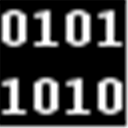Protocol Buffers Alternatives: Top Choices for Data Serialization
Protocol Buffers, often referred to as Protobuf, are Google's robust, language-neutral, platform-neutral, and extensible mechanism for serializing structured data. Think of it as a more efficient, faster, and simpler alternative to XML. While Protobuf excels at defining data structures once and generating source code for various languages (Java, C++, Python) to read and write that data, there are many scenarios where a Protocol Buffers alternative might be a better fit. Whether you need something more human-readable, a different performance profile, or specific feature sets, exploring other options is crucial.
Top Protocol Buffers Alternatives
If you're looking to optimize your data serialization, enhance readability, or simply explore different approaches, these alternatives to Protocol Buffers offer compelling solutions. Each brings its own strengths to the table, catering to diverse development needs.

YAML
YAML, or "YAML Ain't Markup Language," is a human-friendly data serialization standard for all programming languages. It's an excellent Protocol Buffers alternative when human readability is paramount. As a free and open-source solution, YAML is available across Mac, Windows, and Linux, and notably offers Markdown support, making it versatile for various configuration and data storage needs.

TOML
TOML (Tom's Obvious, Minimal Language) aims to be a minimal configuration file format that's easy to read due to its obvious semantics. It's designed to map unambiguously to a hash table, making it a straightforward Protocol Buffers alternative for configuration files. TOML is free, open-source, and compatible with Mac, Windows, and Linux, also providing Markdown support.

MessagePack
MessagePack is an efficient binary serialization specification that enables data exchange among multiple languages. Similar to JSON but quicker and with lower overhead, MessagePack stands out as a high-performance Protocol Buffers alternative for scenarios requiring fast data transfer. It is free and open-source, supported on Mac, Windows, Linux, and BSD.

Eno
The eno notation language is a plain-text data format specifically designed for file-based content. While simple, it's expressive enough to handle complex data structures, offering a flexible and human-readable Protocol Buffers alternative, especially for configuration or content storage. Eno is free, open-source, and runs on Mac, Windows, and Linux.

Avro
Apache Avro™ is a comprehensive data serialization system that provides a compact, fast, binary data format, a container file for persistent data, and remote procedure call (RPC) capabilities. For projects that require robust data serialization and RPC features, Avro is a powerful open-source Protocol Buffers alternative available across Mac, Windows, and Linux.
Choosing the right data serialization format depends entirely on your project's specific needs, including performance, readability, ease of use, and platform compatibility. We encourage you to explore these Protocol Buffers alternatives further to determine which best aligns with your development goals and technical requirements.